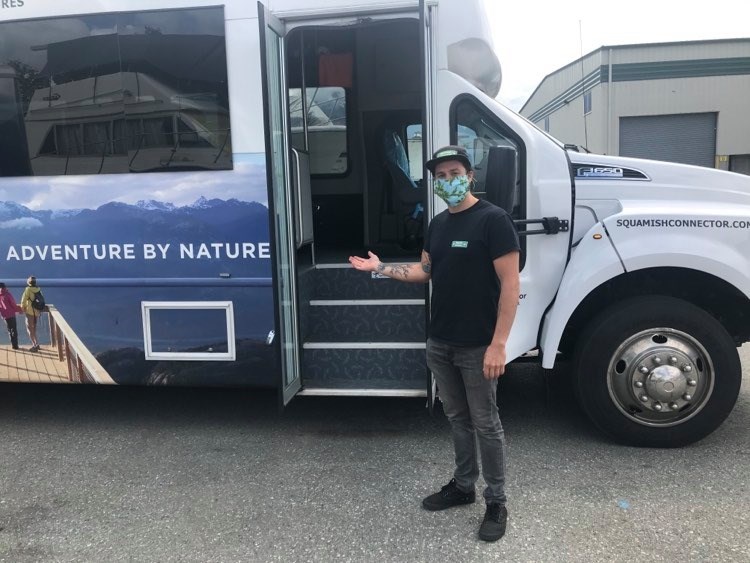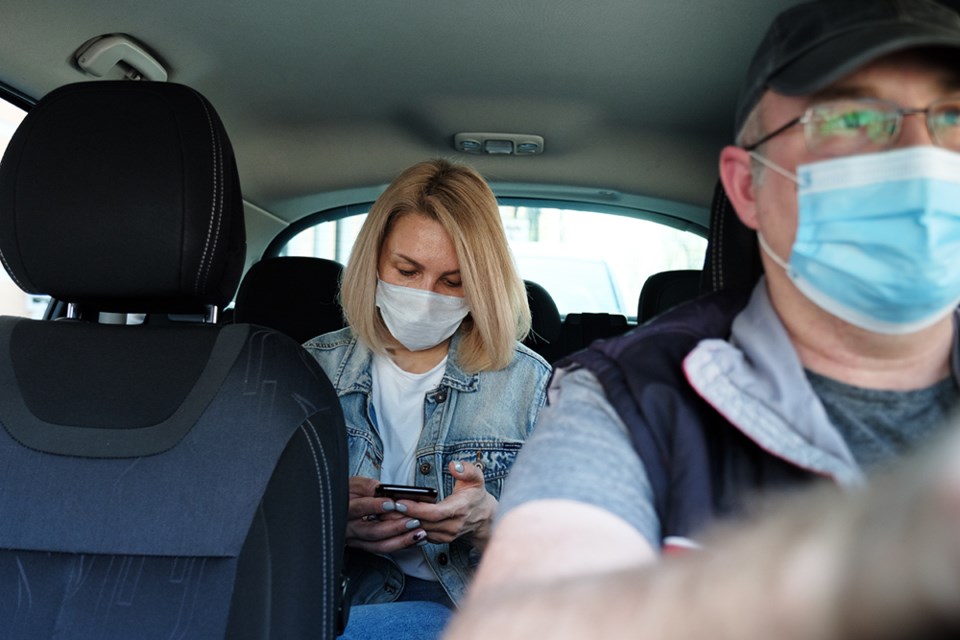When the World Health Organization called COVID-19 a global pandemic in mid-March, that by and large, signalled a halt to regional transportation in the Sea to Sky Corridor.
It has been a hard couple of months for local transportation companies, owners say.
"Almost overnight, we lost almost all of our activity," said Flo Devellennes, co-founder and CEO of ride-share company Poparide.
"In the space of three or four days after the World Health Organization declared a global pandemic, things started shutting down and we saw our booking curve basically go down to the floor."
His business dropped 95% in April. In May, it was down 90%.
"It is going to be a pretty long road to recovery for the travel and transportation industries," he told The Chief.
Fortunately, with a company of only five employees, Poparide was able to keep their staff on salary, Devellennes said.
He also credits the Canada Emergency Wage Subsidy (CEWS) with helping his and other businesses like it stay afloat during the shutdown.
"It is not talked about much, but it actually is helping small businesses a ton to stay open and keep people on the payroll."
Slowly but surely, corridor rides are starting back up, with government guidelines and protocols in place.
Devellennes said the recommendation is still to avoid any unnecessary travel.
The four rules, on top of the usual sanitizing and social distancing, for Poparide are: only travel if you don't have symptoms; while in a vehicle, wear a mask; keep vehicle windows open as much as possible during the ride; and, avoid any physical contact — handshakes or helping a passenger with luggage, for example.
"The overarching message right now, is that our platform should only be used for essential travel," Devellennes said. "If you really have to travel, we are there for you."
As things loosen up more, Devellennes says the company will re-evaluate protocols and procedures.
"We want to really kill this thing by not having any community contagion," he added.
Devellennes hails from France and remains a dual citizen.
Watching the pandemic sweep through Europe first was difficult, he said.
"France and Europe got hit pretty hard," he said.
Luckily, his family overseas has not gotten ill — even though his 95-year-old grandmother was in the hospital for knee surgery when the pandemic hit.
She is home and well, looking forward to an upcoming visit from her family for the first time in months, he said.
From his relatives overseas, Devellennes has learned that the restrictions placed on citizens were far more difficult than what B.C. residents have endured.
"They had a strict lockdown for eight weeks," he said. "People were not allowed to go out unless they had a written authorization... and they couldn't go further than a kilometre radius from their place of residence."
He said for those with kids, it was rough.
"The good thing about this is we have been able to observe what is happening in Europe and make decisions based on which governments are making the better moves in this pandemic, he said.
He hopes to visit his family in France again as soon as possible.

On the shuttle
Felipe Angel with Squamish Connector too said his business took a big hit from COVID-19.
The Squamish to Vancouver (and back) commuter shuttle stopped all operations on April 1.
The company also runs the shuttle for the Sea to Sky Gondola, which was shut down after a vandal cut the main cable.
The gondola reopened in late February and then had to close again due to the pandemic.
"So we too took a hit after a hit," said Angel, of the suspended shuttle service.
"We had to stop the insurance on all of our buses, contact all of our banks with all the loans that we have, and of course try to get as much help as we could from the government," Angel said, adding the company got the $40,000 loan through the Canada Emergency Business Account fund.
Nonetheless, the company had to lay off five employees, he said.
The shutdown was worth it to keep the community safer, he stressed.
Squamish Connector started back up operations on June 1 and two full-time drivers have been brought back.
The company hopes to bring back other drivers as demand increases. Currently, they are running buses half-full, due to pandemic protocols.
Drivers wear masks during any interactions, the 24-seat bus can only take 12 passengers total and a plastic barrier has been put between the driver and riders.
Masks are available for free for passengers.
After each trip, the bus is disinfected.
"We are doing the best we can to keep everyone safe and respect everyone's boundaries," he said.
Squamish Shred Shuttle remains shut down for the time being.
The Chief reached out to a local taxi company, but did not hear back by press deadline.



